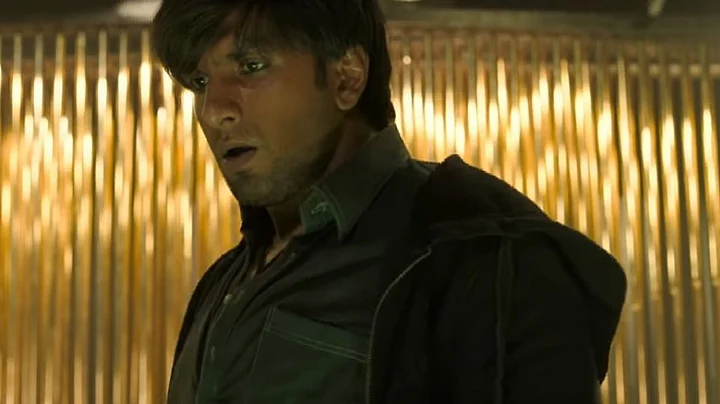It is perhaps no longer hyperbolic to say that Zoya Akhtar’s Gully Boy has achieved cult status, not only in its cinematic expression of a rags-to-riches story, but also weaving a fascinating tale of resistance, disobedience and personal agency.
Notwithstanding the criticisms of its casual indifference to identity politics or invoking familiar tropes of dysfunction and domestic violence, commonly associated with the “poor”, the film marks a creative intervention in offering an unconventional repertoire of digital practice at the margins.
The song sequence of “Azadi” where Gully Boy’s Sky (enacted by Kalki Koechlin) and her upper middle-class friends paint the town black, dissenting issues around consumer capitalism, colorism and environment, we see our street-rapper quietly adding the word “internet” to the Bollywood-inspired working-class (now almost banal) slogan “roti, kapda aur makaan”.
That scene is a poignant reminder of how mobile internet is inextricably linked to a particular kind of urban survival in India, stoking up the middle-class complacency around unlimited digital access, and a valiantly emerging cashless society.
Important to Recognise the ‘Poor’ as Creative Digital Consumers
Digital cultures in India have been understood primarily through the lens of the youth cultures, wherein internet-based spaces have offered a promise to break-away from social regulation and control, and provided opportunities in either self-fashioning or to engage in socially-censored behaviors (dating, courtship and accessing pornography), or political activism. When it comes to understanding digital use among the urban poor, scholars working on India have forcefully argued the need to broaden the development lens of technology adoption or ICT4D.
Put simply, the Information and Communication Technologies for Development (ICT4D) community that draws from intersecting disciplines of sociology, development studies, economics, anthropology and communication studies, emphasises the use of technology for achieving broader social transformations through enhancement of livelihoods or improved quality of life.
While the goal itself is not problematic, as scholars have noted, for the most part, ICT4D has viewed the poor as beneficiaries of development rather than recognising them as creative consumers of digital leisure. For example, Indira Ganesh (2010) and Arora & Rangaswamy (2013) have shown the hazard of understanding the poor and poverty as homogenous categories being uniformly receptive to development interventions, that are seen as being beneficial to them.
Taken together, they have argued the need to recalibrate the technological gaze from a completely instrumental, utilitarian view, to one that acknowledges the plural use of (digital) leisure, that can be both constricting as well as emancipatory for those at the urban margins.
Digital Practices as Empowerment
Social scientists Nimmi Rangaswamy and Payal Arora (2016) persuasively urge to look at digital practices as a legitimate lens for understanding technology use among marginal populations to understand how “digital architectures of today can play in enabling these myriad voices of expression and aspiration.”
Digital practices as empowerment? Seen this way, the movie Gully Boy builds on this assertion, and perhaps unwittingly allows (upper) middle-class Indians a rare opportunity to view the urban poor as dynamic agents, engaged in digital practices for pleasure, play and politics rather than passive recipients of the low cost mobile technology.
Arguably, given India’s fragile regulations around internet privacy (or for that matter, the ambivalent social articulations of privacy), it is no surprise that Gully Boy’s Murad has been able to circumvent his socioeconomic background, religion and race lines to reach out to the world at large. Inadvertently, this reorients a commonly perceived, frivolous “time-pass” activity (often associated with being young, unemployed and lower middle-class) into a serious engagement in aspiration and social mobility.
How Digital Access Can Help Lower-Income Youth Find Their Voice
In a culture where computer literacy and online activity has been seen to shore up symbolic capital in jobs or the ‘marriage market’ among the lower middle-income youth, using the internet to build networked communities of resistance through music is noteworthy.
Although the burden of collective social resistance through music relied on the male initiative, it was refreshing to see female characters in the film appreciating music that is non-mainstream, dark and underground.
More generally, the film foregrounded how access to the internet allowed lower income youth to reflexively shape their selves by articulating their condition (poverty), opening up (even if momentarily) emancipatory possibilities of change, without being too caught-up in the often unproductive debate on “digital-divide”.
For the most part, Gully Boy recasts the ICT for development debate in a creative way, where it preserves the empowerment/livelihood enhancement bit, but does not push it so far, where digital entitlements to aspiration, leisure and fun seem misguided.
(Tannistha Samanta, PhD, is Assistant Professor, Social Demography, Humanities and Social Sciences at the Indian Institute of Technology, Gandhinagar. This is an opinion piece and the views expressed above are the author’s own. The Quint neither endorses nor is responsible for the same.)
